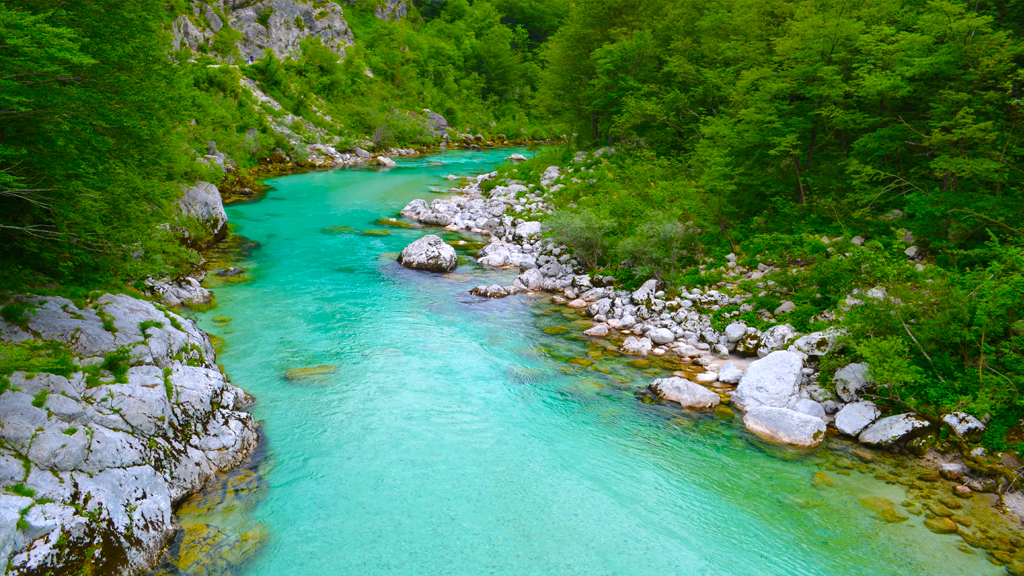Plastic pollution remains one of the most pressing environmental challenges in the Mediterranean, particularly in the Adriatic-Ionian region, which has been identified as a hotspot for marine plastic pollution. With rivers acting as the main pathways for plastic from land to sea, cross-border cooperation is essential to address this growing threat.
Launched in September 2024, the TETHYS4ADRION project embarks on a three-year-long mission to tackle this challenge head-on, delivering a comprehensive strategy to reduce riverine litter and protect freshwater and marine biodiversity.
MIO-ECSDE plays a pivotal role in the project, spearheading efforts to prevent and reduce riverine litter inputs, and restore riverine ecosystems affected by plastic pollution. Additionally, it leads the project’s participatory science interventions across five pilot project rivers, empowering local communities to take up action. TETHYS4ADRION builds on the strong cooperation foundation of the IPA Adriatic DeFishGear project, while also leveraging the impactful results of several other plastic pollution initiatives in which MIO-ECSDE has been actively engaged. These include the ENI CBC Plastic Busters CAP, Interreg Med Plastic Busters MPAs, EU-funded WES program, and more.

Look at this pristine river! This is what we are fighting for! (Photo of Soca river by Th. Vlachogianni)
A Coordinated Response to a Shared Challenge
The TETHYS4ADRION project aims to investigate the role of rivers in marine plastic pollution and implement effective mitigation strategies in the Adriatic-Ionian region. By fostering collaboration among multiple stakeholders, the project seeks to:
- Facilitate the adoption of harmonised methodologies for riverine litter monitoring and conduct pilot studies in key rivers.
- Test and scale up innovative solutions to prevent and mitigate riverine plastic pollution while restoring freshwater habitats.
- Establish a strong policy framework and develop a comprehensive plan to manage and reduce riverine litter in the ADRION region.
Through these actions, the project will not only generate new scientific knowledge but also promote a long-term, coordinated approach to cleaner and healthier river ecosystems.
Key Outputs and Innovations
TETHYS4ADRION will deliver a range of impactful outputs, including:
- Joint Guidelines for Riverine Litter Monitoring: A harmonised monitoring network will be established in five key river areas—Alfeios (Greece), Buna-Bojana (Albania, Montenegro), Soca (Slovenia), Neretva (Croatia, Bosnia and Herzegovina), and Reno (Italy)—to collect and assess data on riverine plastic pollution.
- Blueprint for Best Practice Solutions: This operational guide will outline tested and validated solutions to address riverine plastic litter, ensuring effective implementation in pilot areas and beyond.
- Regional Roadmap Towards Zero Plastic Waste in the Sea: Designed for decision-makers at local, national, and regional levels, the roadmap will provide actionable solutions to reduce riverine litter inputs.
- Regional Stakeholder Network: To maximize impact, a dedicated network of government agencies, NGOs, researchers, industry representatives, and local communities will be established, ensuring long-term commitment to eliminating riverine litter.
Community Engagement: A Pillar of the Project
Public awareness and community involvement are at the heart of TETHYS4ADRION. Through dynamic campaigns, interactive workshops, and educational programs tailored for schools, businesses, and local communities, the project will inspire action and responsibility. Volunteer programs, cleanup initiatives, and river restoration efforts will empower citizens to become active guardians of their waterways.
A Strong Partnership for a Cleaner Future
TETHYS4ADRION brings together leading institutions and experts from across the region, including:
- National Institute of Chemistry – Slovenia
- Institute of Oceanography and Fisheries – Croatia
- University of Tirana – Albania
- Italian Institute for Environmental Protection and Research (ISPRA) – Italy
- Mediterranean Information Office for Environment, Culture and Sustainable Development (MIO-ECSDE) – Greece
- Hellenic Center for Marine Research (HCMR) – Greece
- Institute of Marine Biology, University of Montenegro – Montenegro
- Water Institute of the Republic of Slovenia – Slovenia
- City of Metković – Croatia
- City of Čapljina – Bosnia and Herzegovina
Looking Ahead
By fostering cross-border cooperation, developing robust policy frameworks, and engaging local communities, TETHYS4ADRION is set to make a lasting impact in the fight against plastic pollution. As the project progresses, it will lay the foundation for cleaner rivers and a healthier marine environment in the ADRION region.
For more information contact Dr. Thomais Vlachogianni, Senior MIO-ECSDE Programme/Policy Officer, TETHYS4ADRION WP2 Leader (vlachogianni@mio-ecsde.org) and stay tuned for updates on MIO-ECSDE’s website and social media channels.
Read in French here